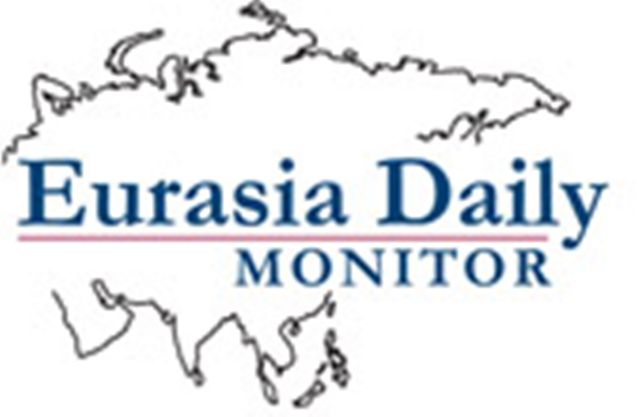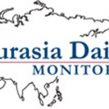
Breakup of Karachaevo-Cherkessia Becomes Subject of Public Debate
Publication: Eurasia Daily Monitor Volume: 7 Issue: 124
By:

On June 17, the leaders of civil organizations in Karachaevo-Cherkessia condemned the Circassians’ resolution, which called for the break up of this small, multiethnic republic in the Northwest Caucasus. On June 5, an extraordinary meeting of Circassians in Karachaevo-Cherkessia, or the "Cherkes" in Russian, called on Moscow to create a separate autonomous a separate autonomous oblast for the Circassians . The pro-Karachai leaders countered that demand by arguing that the break up of Karachai-Cherkessia would put Russia on the track to disintegration as well. The Karachai side alleged that the Circassian leaders regarded gaining autonomy as the first step to full-blown independence from Moscow (www.kavkaz-uzel.ru, June 17).
The Circassians’ wish to secede from the unified Karachay-Cherkes republic is not new. It was most forcefully articulated during the violent presidential elections in the republic in 1999, when the Cherkes candidate Stanislav Derev lost to the Karachai Vladimir Semyonov. Mass fistfights between Cherkes and Karachai youth became a regular feature in the republic, an event that normally preceded ethnic conflicts in the past. Five policemen were recently injured when they tried to break up one such fight, the Kavakzski Uzel (Caucasian Knot) website reported on June 25.
Many of the Circassian activists seek a return to a more peaceful era similar to the period between1926 and 1957, when the republics of Cherkes and Karachai were autonomous administrative units. The Circassians complain that they cannot defend their rights in a republic where their ethnic rivals, Karachais, comprise a clear majority. When the issue of breaking up Karachaevo-Cherkessia reappeared on the political stage in 2008, Moscow was able to persuade the Circassian leaders not to proclaim secession from the republic, but in 2010 it appears to be growing more plausible (Kommersant-Daily, June 7).
This may be due to the growing political activism of the Circassians in the North Caucasus and the populous Circassian Diaspora abroad. The Circassians indigenously live in Kabardino-Balkaria, Karachaevo-Cherkessia, Adygea, and the Krasnodar and Stavropol regions. Sochi, located in Krasnodar, will be the site of the winter Olympics in 2014. The Circassians argue that the Russian state committed genocide against their ancestors in 19th-20th centuries in precisely the same area where the Sochi Olympics are to be held. As a result, a vast majority of the Circassians were forced to leave their homeland. It is believed that 90 percent of the Circassian population today lives outside their original homeland. Increasingly, Circassian activists inside and outside of Russia are calling on Moscow to recognize the genocide and for foreign governments to boycott the Sochi Olympics (www.nosochi2014.com, accessed on June 27).
Besides the Sochi Olympics, there may be other factors that are energizing the Circassians. At the end of April, Moscow’s envoy to the North Caucasus, Aleksandr Khloponin, ordered the president of Karachaevo-Cherkessia, Boris Ebzeyev, to appoint a Cherkes prime minister by May 1, to appease Cherkes grumbling about having lost this traditional position of power. Despite the clear and publicly advertised deadline, the prime minister of the republic was appointed only on June 3, more than a month past the deadline (Kommersant-Daily, June 4). This may be an indicator that even Moscow’s direct involvement cannot guarantee the rights of the ethnic minorities , and the latter are likely to become increasingly more insistent in their demands as a result.
The autumn 2010 census in Russia became another unifying factor for the Circassians in the North Caucasus. The activists appealed to their compatriots to end the ethnic divisions among themselves. The Circassians in Kabardino-Balkaria call themselves the Kabardins, while those in Karachay-Cherkessia call themselves the Cherkes. In Adygea they are known as Adygeys, and there are also Shapsugs and some other tribal names. The activists say that all Circassians should be called by the same name — the Cherkes — as the differences between them are marginal. The Circassian activists hope to gain additional ground for demanding a unified Circassian republic in the North Caucasus. The Russian Academy of Sciences upheld the Circassian request for a unified identity, ruling that all of the different Circassian branches living in the North Caucasus are essentially the same people (www.elot.ru, June 15).
If the Cherkes of Karachaevo-Cherkessia are allowed to secede from the existing republic, then neighboring Kabardino-Balkaria will most likely be doomed as well. The ethnic makeup in Kabardino-Balkaria mirrors that of Karachaevo-Cherkessia. The Balkars, who are closely related to the Karachais, comprise a small minority in the neighboring region. Redrawing the administrative borders in the western part of the North Caucasus will lead to the surfacing of other border issues in this multiethnic region. A unified Cherkessia with a population of roughly one million or more would become a significant force to be reckoned with in the North Caucasus.
Karachaevo-Cherkessia has undergone a significant transformation over the past several years as the different ethnicities comprising this small republic of 430,000 people gradually carved out their own autonomous areas within the republic. The Cherkes, the Nogais (who are related to Kazakhs), the Abaza (who are closely associated with the Abkhaz) and the Karachays all have their own culturally autonomous districts within Karachaevo-Cherkessia. On June 24, the Abaza district, manifesting its autonomy, presented its new national emblem and flag (www.kavkaz-uzel.ru, June 25). There seems to be increasingly little that can be done to keep this multiethnic republic –which has existed only for the past 50 years – together.
While Moscow is likely to try to suppress the Cherkes’ secessionist demands, the upcoming Sochi Olympics make it more difficult to do so, or to disregard the aspirations of the local peoples. Moscow set up a new North Caucasian federal district in January 2010 that made it even more likely for all types of opportunists to seek further changes in the region.




